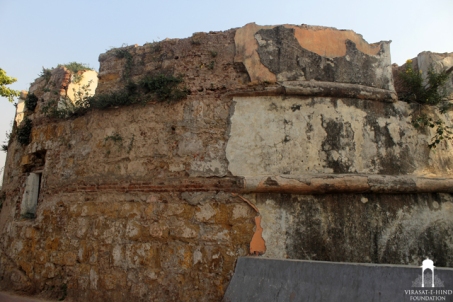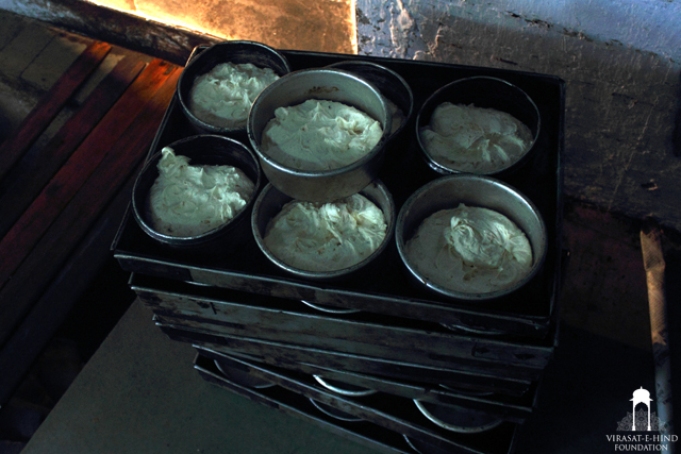Lets Understand Zoroastrianism – email course conducted by “Ahunavar Academy”. Content provided by Er. Dr. Ramiyar Karanjia. Course co-ordinator Khojeste Bharucha. Contributions towards “Ahunavar Academy” are welcome.
- 1- Teachings, Advise and Counsels for Life
From Later Zoroastrian texts
By Ramiyar P. Karanjia
(In 12 Parts)
(For January to March 2017)
1 of 12
INTRODUCTION:
Zoroastrian religion has a large body of literature in the Pahlavi language which has a lot of worldly wisdom in it. That is why it is also known as Wisdom literature. These books were written in the Sasanian period (3rd to 7th century CE) in Iran by priests, kings and holy men.
These advise and counsel are based on popular, practical, worldly instructions and are not too metaphysical or philosophical in nature. They are practical as well as religious. Most of them are valid as much today as when they were composed.
The general tenor of the teachings is that man should enjoy the good things of this world, while at the same time be mindful of eternal life by right and reasonable conduct.
The counsels are balanced and practical. The keynote is generally on moderation. There is no advocacy of pursuing extremes, hence asceticism and hedonism are to be avoided. There are no commands to love one’s enemy or to silently suffer oppression. One is advised to be wise enough to be out of the way of the enemy, if the enemy is too powerful.
I have made an attempt here to classify and analyse some of the key issues dealt in these texts:
2 of 12
Wisdom:
Wisdom is a key Zoroastrian teaching as the name Ahura Mazda itself means “Lord Wisdom.” Wisdom is regarded as the capacity of the mind to take decisions in the day to day affairs of the world on the basis of previously gathered information and past experiences. Hence, to have Wisdom means to have proper knowledge which gives powers of reasoning and judgment. Wisdom also implies knowing oneself, one’s origins, spiritual inclinations and the final goal of life
Wisdom is regarded as the first among the good qualities for men. A truly wise man is one who is acquainted with religion, does not have doubts about the goodness of God, who completely trusts God and religion and occupies himself in the worship of God and his creations.
According to the texts, the five characteristics of a wise man are:
- Not having anxiety on account of the past
- Not resorting to wrong means for achieving success.
- Being content with one’s achievements.
- Having attainable hopes and dreams.
- Having a balanced reaction to life’s circumstances, that is, not being excessively sad in misery nor extremely happy in good times.
3 of 12
Education:
Necessity of worldly and religious education are regularly stressed in ancient texts. Education is considered essential as it leads to enlightenment. Education is considered an embellishment during prosperity, a protection during adversity, a helper during calamity and a means of sustenance in times of poverty. A well educated person is able to keep himself away from trouble. Lack of education is regarded as darkest of all darkness.
Education was considered as much a right of women as men. Men were cautioned not to keep their children away from education as it would result in much grief and trouble and men would have to repent later for their negligence.
An educate person was always preferred over a wealthy person, since wealth may disappear, cattle may die but education remains with the person forever.
The most important education is self-knowledge. Every person, by the time of attaining the age of 15 should know answers to certain basic and eternal questions, like: “Who am I? With what am I connected? From where have I come? Where will I go? What is my duty and purpose in the world? What is the path of life according my religion? What is good for me and what is not?
4 of 12
Duties:
The ancient texts devote considerable attention, both to the normal as well as the religious duties of a person.
Normal duties:
v Among the foremost duty of man is to spend one-third of the day and night in working for livelihood and producing prosperity, one-third of the day should be devoted to religious work and spiritual quest and the rest of the time should be spent be in rest and recreation and pleasure.
v Parents should teach religion and normal duties to children before they attain the age of 15.
v One should regularly confer with good people individually or in groups which spurs the performance of good deeds and helps maintain piety.
Religious duties:
v To believe with faith and without doubt in one’s own religion.
v Not to praise or believe in other religions.
v To maintain the laws of the religion and perform good deeds.
v To get up early in the morning and pray.
v To daily perform worship of God.
v To regularly go to the fire temple.
v To go to a religious school to learn prayers, their meanings and religion.
v To keep questioning the soul about its actions.
v Keep the soul in mind while performing any action.
5 of 12
Faith:
If man wants to be happy, he needs to have complete faith in the final victory of good spiritual beings and the ultimate destruction of the evil beings. He should not have an iota of doubt about the existence of the spiritual world and its denizens, the religion, the soul, heaven and hell, reckoning of the third night, Ristākhez and Tan-i-pasen.
Man needs to have total faith and be doubtless about the following universal truths:
- There is advantage from good deeds and harm from sin.
- Ahura Mazda is my friend and Ahriman my foe.
- There is only one path of religion for each person – the path of Asha.
- Existence of two original Spirits – The Good Spirit and the Evil Spirit.
- Ahura Mazda is the creator from whom proceeds all goodness and light. The Evil Spirit is the destroyer from whom proceeds all wickedness, death and deceit.
- Good thoughts, words and deeds are the path of the Creator and lead to Heaven.
- Evil thoughts, words and deeds are the path of the Evil Spirit and lead to Hell.
- All distress, death and wickedness are from the Evil Spirit, who will be destroyed in the end.
- The after life happenings, namely, destruction of the body after death, passing of the Chinwad bridge, and arrival of the Saoshyant for the happening of Ristākhez and Tan-i-pasen.
6 of 12
Good and Evil:
Good and evil is in this world right since its inception. Man is expected to tread the path of good. There is a constant struggle in man’s life, wherein he is expected to choose between good and evil. The soul of a person who chooses good attains heaven and that of a person who chooses evil goes to hell.
The Evil Spirit has a clever ploy to deceive man. He hides from people the rewards of good deeds and punishments of sins, so that man may not be able to see the outcome of their work. Ahura Mazda, in order to help man overcome this shortcoming, has granted him faculties of wisdom, inherent disposition (Guj. swabhav), hope and contentment which he can acquire by studying religion and conferring with good people.
In order to be good. man has to have certain virtues, values and habits like Moderation, Gratitude, Restraint and Contentment.
In order to be happy, man is also advised to keep away from certain vices. Chief among them are anger, mockery, ignorance, excess-deficiency, oppressiveness, deceitfulness, jealousy, revenge, sloth, impiety, slander and doubt. They make man wicked and bring him ill-repute.
Anger for a cause may be justified, but anger without reason is the mark of an ignorant person. Anger and revenge are considered the worst enemies of the soul.
Ridiculing others is one of the lowest depths to which a man can fall. One is advised not to ridicule even those who are lower down in social, educational and financial status than oneself. A person who derides others, he may himself become helpless and a source of ridicule. Laughing out of place, immoderately and in mockery is strictly forbidden.
If you know someone who wants more information or knowledge about our religion please either forward information to them or you can provide me their email ids which ill update in my distribution list
Khojeste Bharucha
khojeste8@gmail.com























